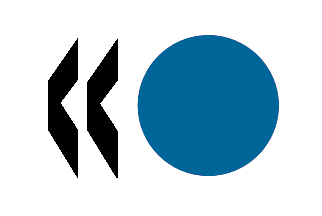Brussels calls for OECD-wide carbon market
 Brussels - The world's richest countries should set up a joint market system for forcing heavy industry to buy permits to emit greenhouse gases by 2015, the European Union's executive said on Wednesday.
Brussels - The world's richest countries should set up a joint market system for forcing heavy industry to buy permits to emit greenhouse gases by 2015, the European Union's executive said on Wednesday.
Moreover, developing powers such as China and India, which are not members of the Organization for Economic Cooperation and Development (OECD), should join such a system no later than 2020, the European Commission proposed.
At the same time, developing countries should receive substantial funding from the wealthy world in order to help them cut their emissions.
Brussels officials say to limit the rise in global temperatures to below 2 degrees celsius, as advocated by scientists, the world should increase its investments in green technology to 175 billion euros (230 billion dollars) per year in 2020.
The proposals spelled out on Wednesday by EU Environment Commissioner Stavros Dimas are designed to consolidate Europe's trumpeted leadership in tackling global warming, with the measures due to be discussed at an international conference taking place in Copenhagen in December.
They were approved in Brussels just a day after new US President Barack Obama named Todd Stern as the country's first-ever climate change envoy, confirming his plans to reverse the sceptical approach to the issue displayed by former president George W Bush.
Dimas said the latest signals coming out of Washington, as well as joint initiatives being adopted by Australia and New Zealand, showed that the idea of creating an OECD-wide carbon market was becoming "increasingly realistic."
A month ago, EU leaders adopted a series of laws aimed at cutting the 27-member bloc's emissions of greenhouse gases to 20 per cent below 1990 levels by 2020.
EU governments also agreed to set out national targets for reducing domestic emissions and boosting the use of non-polluting power sources such as wind and solar energy.
It was the first time that a major economic bloc had passed laws which look beyond the Kyoto Protocol on fighting climate change, which expires in 2012.
According to Dimas, it put Europe "at the forefront of the global fight against climate change."
The commissioner said other major players should now sign up to equally aggressive measures in Copenhagen.
Rich economies such as the United States and Australia, for instance, should cut their emissions to an average of 30 per cent below
1990 levels by 2020, with the exact target depending on their current wealth and the efforts they have already made to limit emissions.
The EU has already pledged to deepen its emission cuts to 30 per cent by 2020 if other major economies follow suit.
The EU also wants developing powers such as China, India and Brazil to slow down their emissions growth so that they release between 15 and 30 per cent less greenhouse gas in 2020 than they would do if they pursued their current policies.
The proposed funding to developing countries would be divided equally between projects for supporting non-polluting energy generation, reducing deforestation and helping poor countries adapt to climate change by, for example, building flood defences and irrigation systems.
However, the commission's proposals will have to pass two tough political tests if they are to have any chance of global acceptance.
First, they will have to be approved by the EU's 27 member states, who are currently reeling under the impact of the global financial crisis, and who have little appetite for expensive new initiatives.
They will then have to win approval from world powers in Copenhagen - a negotiation which promises to be anything but simple. (dpa)